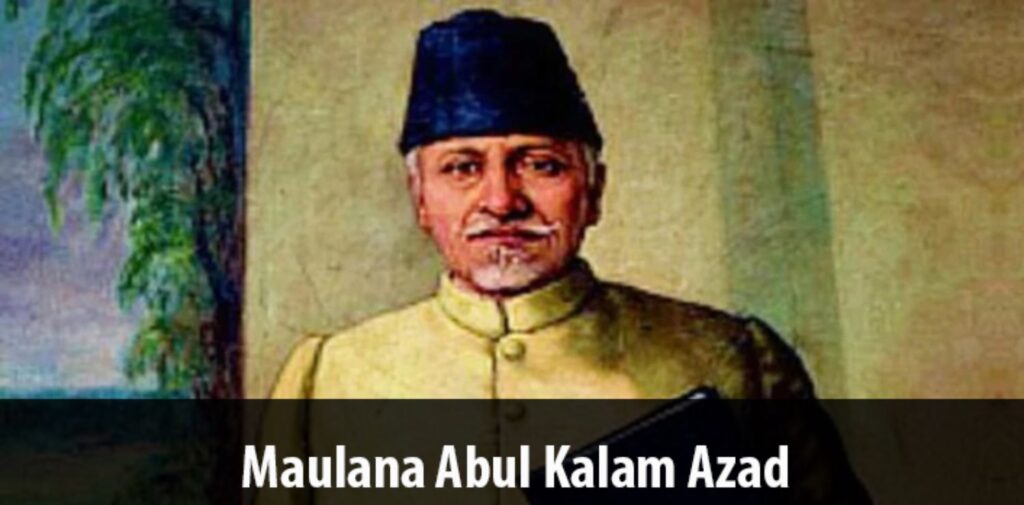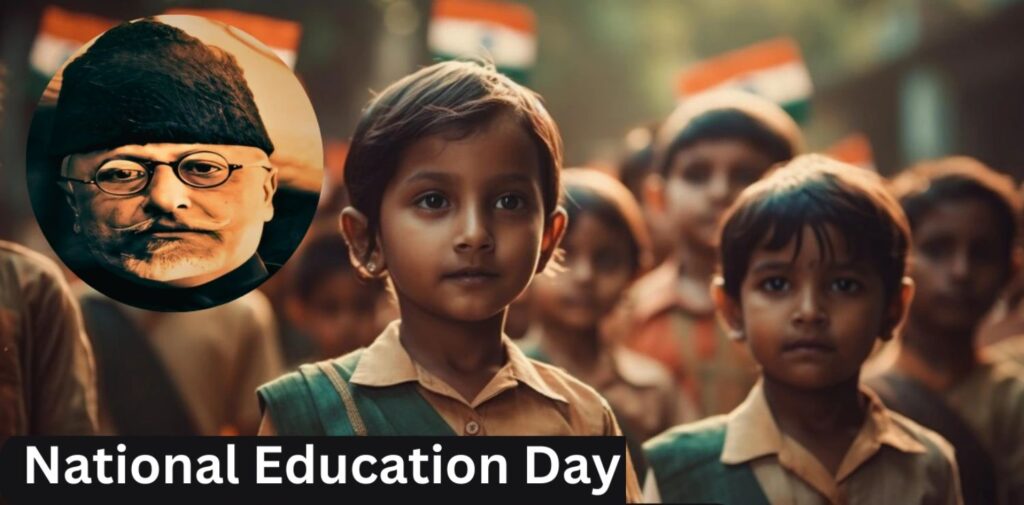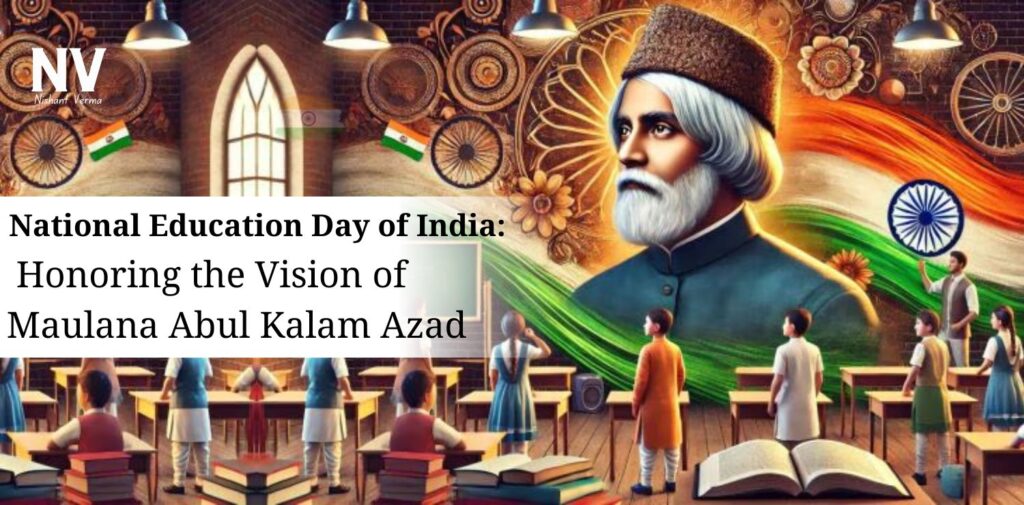Every year, India celebrates National Education Day on November 11th to honour the birth anniversary of Maulana Abul Kalam Azad, a visionary leader who played a pivotal role in shaping India’s educational landscape. This day serves as a reminder of the importance of education in building a progressive, inclusive, and empowered society. It celebrates not just the memory of Azad’s contributions, but also reaffirms India’s commitment to improving its education system and ensuring that quality education reaches all corners of the country.
Who Was Maulana Abul Kalam Azad?
Maulana Abul Kalam Azad was not only an eminent scholar and a prominent leader of the Indian freedom movement but also a pioneering advocate for education in India. Born on November 11, 1888, in Mecca, Azad was a man of many talents: a journalist, poet, philosopher, and one of the key leaders who contributed to India’s independence. However, his contributions to the educational sector are perhaps his most enduring legacy.
After independence, when India was in the process of rebuilding and charting its future, Azad served as the first Minister of Education in the Government of India (1947-1958). He laid the foundation for India’s modern education system, focusing on the promotion of universal education, particularly for the underprivileged and women.

The Significance of National Education Day
National Education Day is celebrated in recognition of Maulana Azad’s vision for a strong and inclusive educational framework in India. It’s a day to reflect on how far the nation has come in the field of education, as well as the challenges that remain. The day highlights the importance of education in shaping individuals and communities and is a call to action for all stakeholders—government, educators, students, and society at large—to work towards improving the quality and accessibility of education.
Education is considered the most powerful tool for personal and social transformation, and National Education Day emphasizes the need to provide a robust educational framework that can address the diverse needs of a growing nation.
Maulana Abul Kalam Azad’s Educational Contributions
Maulana Azad was deeply committed to the idea that education is the key to India’s progress. He believed that to build a just and equitable society, education must be made accessible to everyone, regardless of their social or economic status. Some of his key contributions include:
- Universalization of Education: Azad was a strong advocate for the universalization of education, emphasizing that every child should have access to quality education. His ministry worked towards expanding educational facilities, particularly in rural areas, and making education a fundamental right for all citizens.
- Promotion of Technical and Vocational Education: Azad understood that India’s future progress depended not just on traditional learning, but also on equipping the youth with technical and vocational skills. Under his leadership, various technical institutions, such as the Indian Institutes of Technology (IITs), were established, which would go on to become world-renowned.
- Founding the University Grants Commission (UGC): One of Azad’s most significant contributions was the establishment of the University Grants Commission (UGC) in 1956. The UGC was tasked with overseeing the development of universities and promoting higher education across the country. This move was crucial in shaping India’s higher education sector and ensuring the standardization of university education.
- Promotion of Science and Technology: Azad was a strong proponent of scientific education, advocating for the development of research and innovation in India. He recognized that India needed to create a strong foundation in science and technology to compete on the global stage. His efforts helped in setting up numerous scientific research institutions across the country.
- Support for Educational Institutions for Women: Azad was one of the early advocates for girls’ education in India. During his tenure, he worked to increase female literacy and expand opportunities for women’s education. He believed that empowering women through education would lead to broader societal benefits.
- National Policy on Education: Azad was a key figure in shaping the National Policy on Education (NPE), which laid down the framework for India’s educational planning and reforms. The policy addressed key issues such as the need for rural education, improving educational quality, and enhancing accessibility for marginalized communities.

Celebrations on National Education Day
On National Education Day, a wide range of activities take place across India. These include:
- Educational Programs and Discussions: Schools and colleges across the country conduct seminars, debates, and discussions on topics related to education and its role in nation-building. These programs often focus on Azad’s contributions and the importance of quality education in today’s context.
- Awards and Recognition: The Government of India honours various educational institutions and individuals for their exceptional contributions to the education sector. National Awards for Teachers are given on this day, recognizing the hard work and dedication of educators who have made a significant impact on their students and communities.
- Inauguration of Educational Initiatives: Many state governments and educational organizations use this day to launch new educational schemes, projects, or initiatives that aim to improve the quality and accessibility of education.
- Cultural Programs: In many schools, cultural programs are organized that reflect the spirit of education and learning. These programs often include performances that highlight the role of education in shaping a better future for all.

Challenges in the Indian Education System
While National Education Day serves as a reminder of the progress India has made in education, it also highlights the many challenges the country continues to face. Some of the key challenges include:
- Quality of Education: Despite significant improvements, the quality of education remains uneven across different regions of India. Rural and underprivileged areas often lack proper infrastructure, qualified teachers, and adequate resources, which can hinder the learning experience.
- Access to Education: While enrollment rates have improved, many children, especially in rural areas, still do not have access to schooling. Issues like poverty, child labour, and gender discrimination continue to be barriers to education for many.
- Teacher Shortage: India faces a significant shortage of teachers, particularly in rural and remote areas. Additionally, the quality of teacher training is sometimes subpar, which affects the overall quality of education.
- Dropout Rates: High dropout rates, especially among girls and children from economically disadvantaged families, remain a pressing issue. Many children are forced to leave school to work and support their families, which undermines the nation’s educational goals.
- Curriculum and Relevance: There is ongoing debate about the relevance of the current curriculum. Critics argue that the education system needs to move away from rote learning and emphasize critical thinking, creativity, and skill development to prepare students for the challenges of the 21st century.
The Way Forward
National Education Day serves as an opportunity to reflect on these challenges and envision a better future for education in India. The way forward involves:
- Investing in Infrastructure: There is a need to continue investing in school infrastructure, particularly in rural areas, to ensure that every child has access to a conducive learning environment.
- Teacher Training and Professional Development: Strengthening teacher training programs and ensuring ongoing professional development is essential to improving the quality of education.
- Promoting Inclusive Education: Special efforts should be made to include marginalized communities, such as tribal groups, children with disabilities, and girls, in the educational fold. Policies and schemes that promote inclusivity must be prioritized.
- Revamping the Curriculum: The curriculum should be made more relevant to the needs of the modern world. Emphasis on digital literacy, problem-solving, and vocational skills will better prepare students for the challenges ahead.
Conclusion
On National Education Day, we remember the contributions of Maulana Abul Kalam Azad and recommit ourselves to the cause of education. While much has been achieved since Azad’s time, the work is far from over. India’s education system, while vast and diverse, needs continuous reform and innovation to ensure that every citizen, regardless of their background, has access to the transformative power of education. Through sustained efforts, we can realize Azad’s vision of a truly educated India, where education serves as a bridge to social equity, economic progress, and national unity.




